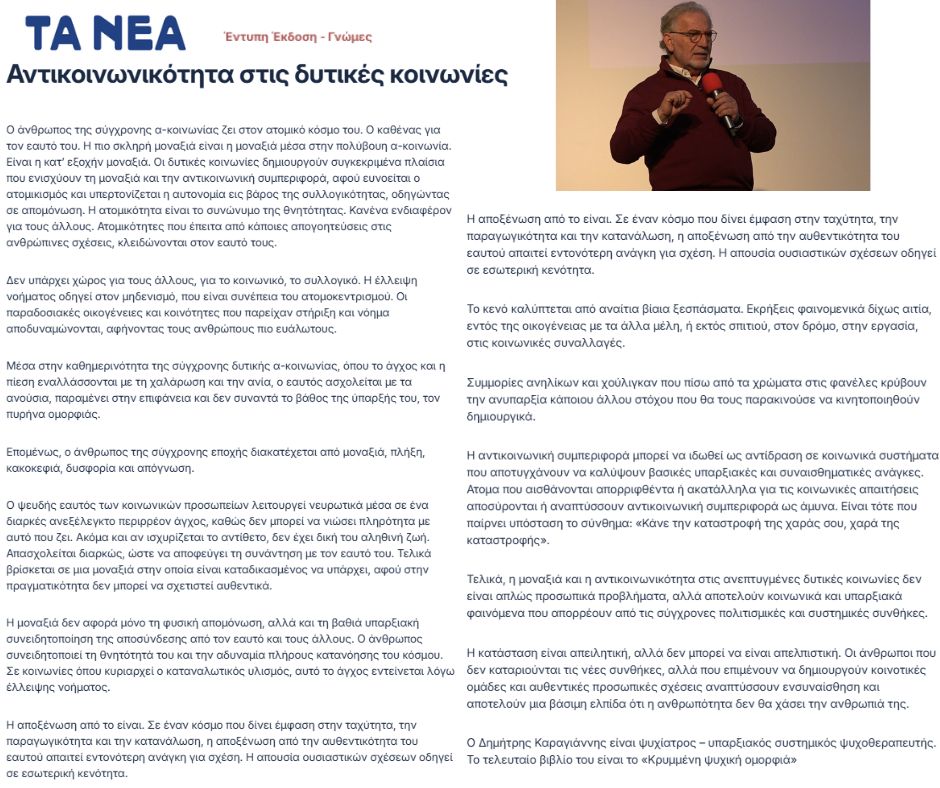Dimitris Karagiannis, Psychiatrist - Psychotherapist, writes in the newspaper "Ta Nea".
The man of modern a-society lives in his individual world. Each for himself. The harshest loneliness is loneliness within the bustling a-society. It is loneliness par excellence. Western societies create specific frameworks that reinforce loneliness and antisocial behavior, since individualism is favored and autonomy is overemphasized at the expense of collectivity, leading to isolation. Individuality is synonymous with mortality. No interest in others. Individualities that, after some disappointments in human relationships, lock themselves in on themselves.
There is no room for others, for the social, the collective. The lack of meaning leads to nihilism, which is a consequence of individualism. Traditional families and communities that provided support and meaning are weakened, leaving people more vulnerable.
In the everyday life of modern Western a-society, where stress and pressure alternate with relaxation and boredom, the self is preoccupied with the meaningless, remains on the surface and does not encounter the depth of its existence, the core of beauty.
Therefore, modern man is possessed by loneliness, boredom, bad mood, discomfort and despair.
The false self of social masks operates neurotically in a constant uncontrolled circulating anxiety, as it cannot feel complete with what it lives. Even if it claims the opposite, it does not have its own true life. It is constantly busy, so as to avoid meeting itself. Ultimately it finds itself in a loneliness in which it is condemned to exist, since in reality it cannot relate authentically.
Loneliness is not only about physical isolation, but also about a deep existential awareness of disconnection from oneself and others. Man becomes aware of his mortality and the impossibility of fully understanding the world. In societies dominated by consumerist materialism, this anxiety is intensified by a lack of meaning.
Alienation from being. In a world that emphasizes speed, productivity, and consumption, alienation from the authenticity of the self requires a heightened need for connection. The absence of meaningful relationships leads to inner emptiness.
The void is filled by causeless violent outbursts. Explosions seemingly without cause, within the family with other members, or outside the home, on the street, at work, in social interactions.
Gangs of minors and hooligans who, behind the colors on their shirts, hide the absence of any other goal that would motivate them to mobilize creatively.
Antisocial behavior can be seen as a reaction to social systems that fail to meet basic existential and emotional needs. Individuals who feel rejected or inadequate to social demands withdraw or develop antisocial behavior as a defense. It is then that the slogan takes shape: "Make the destruction of your joy, the joy of destruction."
Ultimately, loneliness and antisociality in developed Western societies are not simply personal problems, but are social and existential phenomena that stem from contemporary cultural and systemic conditions.
The situation is threatening, but it cannot be hopeless. People who do not curse the new conditions, but who insist on creating community groups and authentic personal relationships develop empathy and constitute a well-founded hope that humanity will not lose its humanity.


